Text: Juliane Gringer
Photos: Martin Leissl, BGL, AdobeStock – Kzenon, AdobeStock – Africa-Studio
Logistics is suffering from a severe lack of drivers – the profession has lost its appeal and its image is suffering. The ‘PROFI – Pro Fahrer-Image’ initiative aims to change this and ensure that industry, retail, the transport sector and the general public once again appreciate professional drivers for what they are, namely one of the most important players in the logistics chain. In an interview, Professor Dirk Engelhardt, chairman of the board of Germany’s Federal Road Freight Transport, Logistics and Waste Management Association (abbreviated BGL in German), and Ralf Merkelbach, key account manager for major fleets in Europe at BPW Bergische Achsen, explain how the initiative plans to achieve this goal.
Ralf Merkelbach: PROFI is an association and an alliance between the BGL, the industry – i.e. the manufacturers of vehicles as well as components and solutions – and the drivers. The goal of the initiative is to improve the image of professional drivers in Germany and at the same time help attract more young people to the profession.
Dirk Engelhardt: In addition, many trade press outlets are also involved, meaning more or less the entire logistics community – everyone active in this field who wants do something about the shortage of drivers and help improve their image. The idea for PROFI arose out of a dialogue with industry representatives. We realised that everyone is talking about the lack of drivers – we need to take action together. Every day, drivers play an important role in keeping our economy humming along and ensuring that everyone has access to essential goods. Imagine if every logistics specialist and every driver just stopped working for a week – everything would collapse. We are going to use all available forms of media and every opportunity to make this fact clear to the general public and all of the stakeholders in the industry once again.
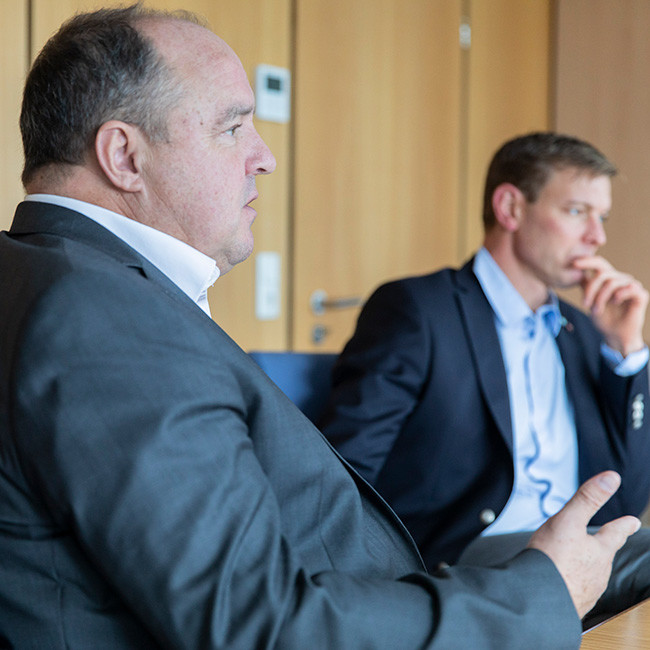
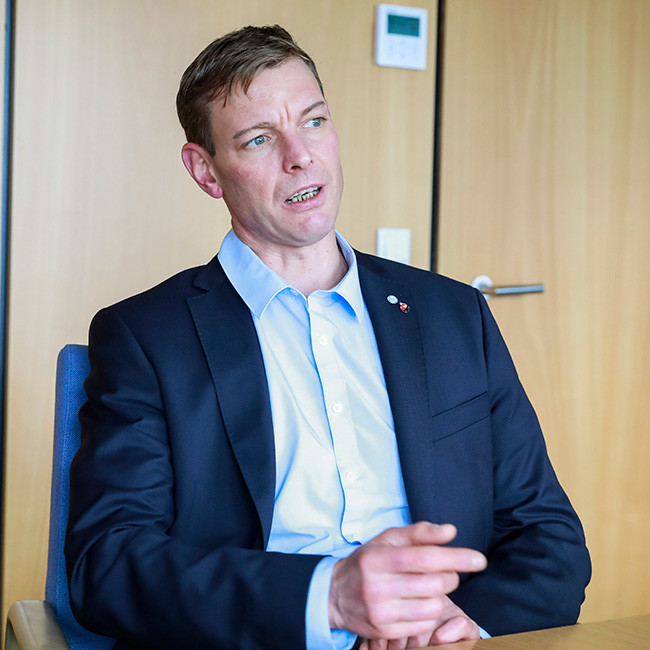
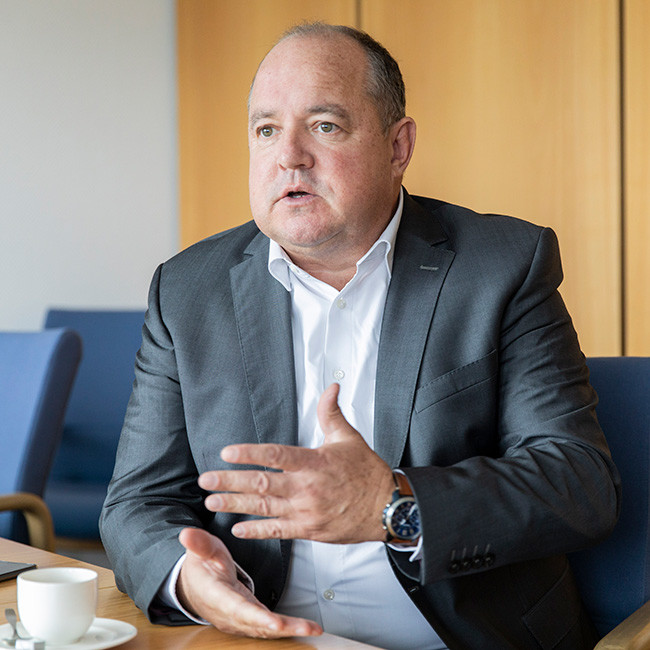
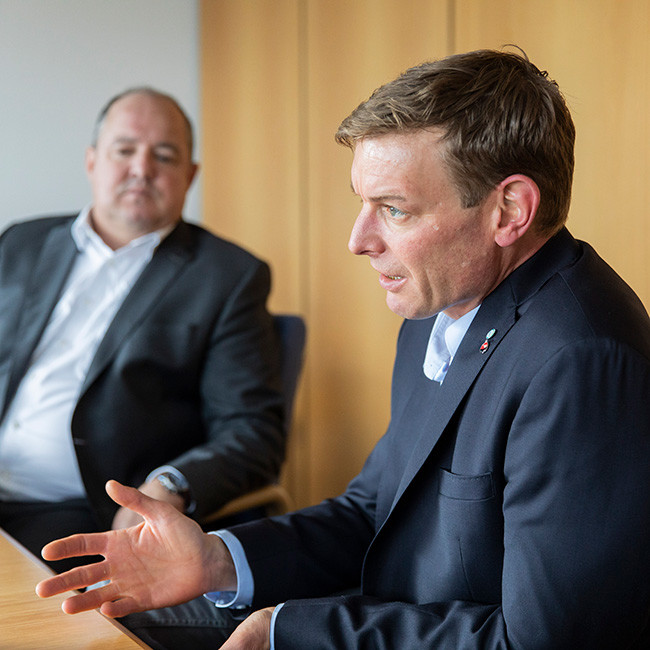
Engelhardt: I would like to see genuine acceptance among the general public and also in the media. Trucks and their drivers can no longer be cast in such a negative light, but should instead be portrayed as what they really are – the backbone of the German economy. I think people have forgotten how important the industry is and, through PROFI, we are working to remind them.
Merkelbach: I can still remember the positive image truck drivers enjoyed in the past. When the series Auf Achse (On the Road) came on German television in 1978, it was a great time for drivers because they got the appreciation they deserved. Back then they were considered the ‘kings of the road’. Now they don’t need to be kings, but today people should still appreciate everything they do for us.
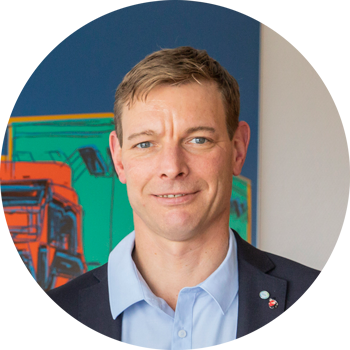
»I think people have forgotten how important the industry is and, through PROFI, we are working to remind them.«
Professor Dirk Engelhardt, chairman of the BGL
Engelhardt: Germany currently faces a shortage of between 40,000 and 60,000 drivers. As I see it, there isn’t just one reason for this shortage, but several. On the one hand, the pay was poor for many years, but at the moment it’s on the rise. We also lack 40,000 parking spaces – not knowing where I can park my truck and take a shower in the evening is not very appealing. On top of that, we have a road infrastructure problem – not being able to plan when I’ll be home to see my family or my partner is a major deterrent. Many employers in the skilled trades and construction industry offer better working conditions in this regard.
Merkelbach: In addition, professional truck driver training is expensive in Germany and the German Armed Forces no longer offer it. The average age of truck drivers today is also rising steadily – and this job is quite challenging physically. It’s a lot harder to hop up into the cab when you’re 50 or 60. This is why recruiting young people is also such an important issue in order to bring down the average age.
Engelhardt: So we are confronted with a multitude of problems resulting in fewer drivers, while at the same time transport volumes are increasing dramatically because, as a society, our consumption habits have radically changed. At present, 3.5 billion parcels are shipped annually in Germany. Experts believe this figure will rise to nine billion in the next nine to ten years – that means more commercial vehicles on the road, and they all need drivers. We need to take action now if we don’t want to head straight into a supply chain collapse.
Engelhardt: This is a point where we urgently need to clear up some misconceptions! When so-called digitisation experts tell us that truck traffic will become completely autonomous in only a few years’ time, this of course also discourages new generations of drivers. Their parents then say ‘my child isn’t going to train to be unemployed!’ In this case, we need to clearly show that – despite all the assistance provided by technology, which we are by no means demonising, but in fact advocating for – the driver is simply going to have different or expanded responsibilities, like securing loads or processing returns. But, in my opinion, there is no basis for suggesting to people that the entire truck-driving profession will soon become obsolete. Particularly as a result of greater urbanisation in the coming decades, cities will need many more drivers for delivery services. They will certainly have other responsibilities than they do today, but they will always be needed.
Merkelbach: Today, the driver isn’t just there to steer the vehicle, but instead has a lot of responsibility. The fact that this is so often overlooked shows that their contributions are not appreciated. I also view digitisation as a career opportunity – young people today are growing up in a high-tech world. If you can offer them a job where this is still the case, it can be very exciting for them.
Engelhardt: I also believe that the number of IT interfaces that such a driver will have to operate will increase sharply in the future as digitisation progresses. We have already coined the term ‘transport manager’ internally – the requirements will increase, and that is why we actually need drivers who are even more highly qualified.
Merkelbach: The BGL acts as an umbrella organisation for the whole project and brings together the people who can implement it. One might think that, as a manufacturer, we at BPW have little to do with drivers directly. But a transport industry would simply no longer function without them. Our customers include vehicle manufacturers and vehicle operators – in discussions with hauliers, we identify the challenges they face and work with them as partners to find solutions. But there are many more ways to support the drivers. Some examples include loading dock assignments, loading dock hours of operation and the behaviour of everyone at the loading dock; sufficient parking spaces; driving times, breaks and the driver’s accommodations; and also the recruitment of new drivers. If we develop digital applications and telematics, we can also consider how telematics information must be made available to the driver and how telematics can assist the driver and make their day-to-day work easier.
Engelhardt: On the one hand, the BGL as an association can advocate in the political arena in Berlin and Brussels, draw attention to the problems and contribute the expertise not only of the association and the industry but also that of the drivers when drafting the relevant legislation. We also view ourselves as a platform that brings together the various stakeholders. The BGL is currently evolving from just a lobbying association into both a lobbying and service association, and is therefore ideally suited to actively operate such a network with its partners.
Merkelbach: From the perspective of a company in the industry, we have always worked very cooperatively with the association on a wide range of issues. We do not want to form individual groups, but instead speak with one collective voice in order to strengthen the industry overall. At BPW, for example, we have the ability to promote the cause through channels such as motionist.com, and we can publicise it at trade fairs and speak with thought leaders. We can be a powerful voice for the industry and raise awareness of the issue. Together, all of the stakeholders – the association, member companies, hauliers and drivers – are a powerful force.
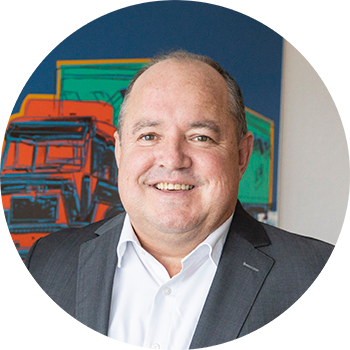
»We all want to speak with one voice to strengthen the industry.«
Ralf Merkelbach, BPW key account manager for major fleets in Europe
Merkelbach: Not only are they allowed to, they have to! After all, we don’t simply want to talk about them, we want to develop the initiative together with them.
Engelhardt: We deliberately opened up PROFI and want the drivers to interact with each other and, in future, also to hold positions within the association. We need them, because they can tell us about their challenges and thus enable us to take the appropriate measures. At the same time, we want them to take responsibility for themselves – they certainly have their part to play and need to work on their own image. To put it bluntly: if a driver stumbles out of the cab at a busy service area in his undershirt during the school holidays, throws his garbage next to the truck and relieves himself against the tyre, well, it certainly won’t help improve the occupation’s image. That’s why we’re also planning to release something like a driver’s etiquette booklet that they can use as a guide.
Engelhardt: On the one hand, we have to show that the job is attractive and will remain so in the future. To this end, we will use social media and communicate via Facebook, YouTube, Instagram, Twitter and LinkedIn, among other channels – if we are able to raise enough funds, also via television advertising. We will get the drivers themselves involved, as well as everyone else who is active around this issue. In addition to the trade press, we will also target consumer media in order to reach more people. Another aspect is that we must ensure that the cabs become longer. The new EU legislation allows 90 centimetres more space. This would mean that the vehicles would become a more comfortable workplace where the driver can store their personal belongings as well as feed and take care of themselves. And we need to attract more women – at present, only 1.7 per cent of drivers are female. And yet this is a very attractive job, where non-traditional working hours are also possible – for example in urban environments, where you can work shifts delivering parcels in the morning.

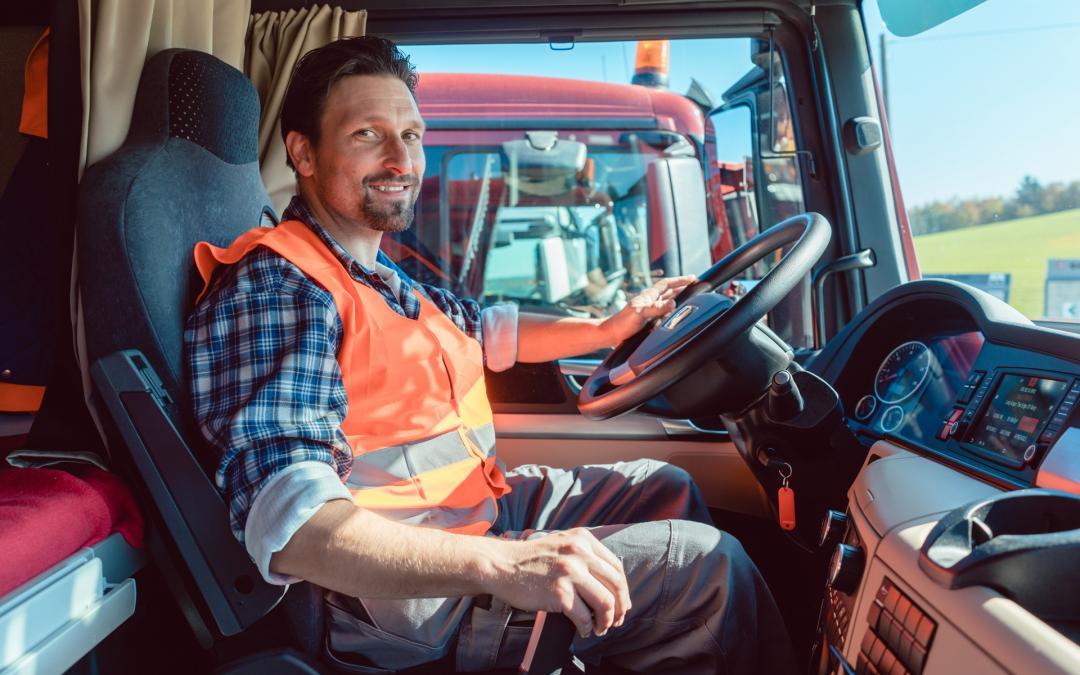
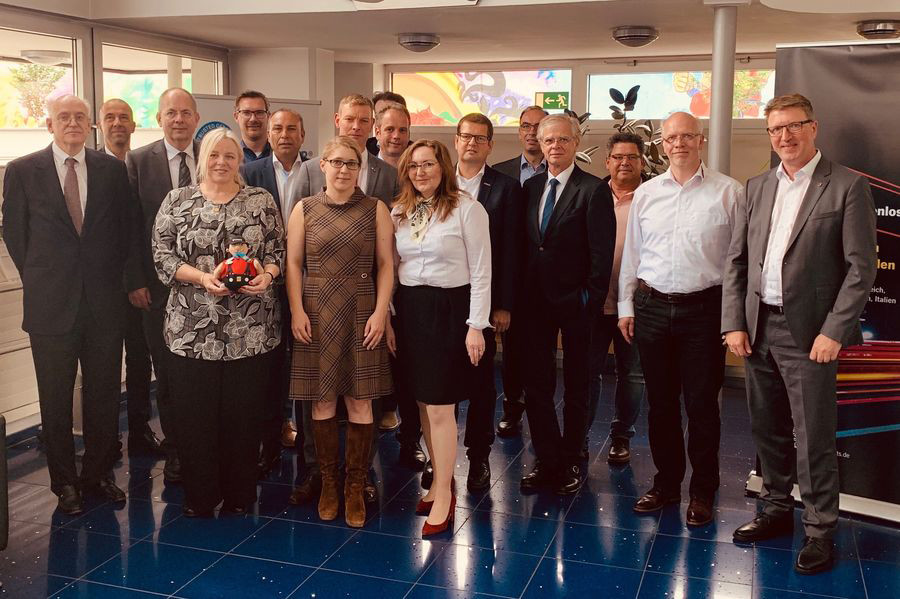
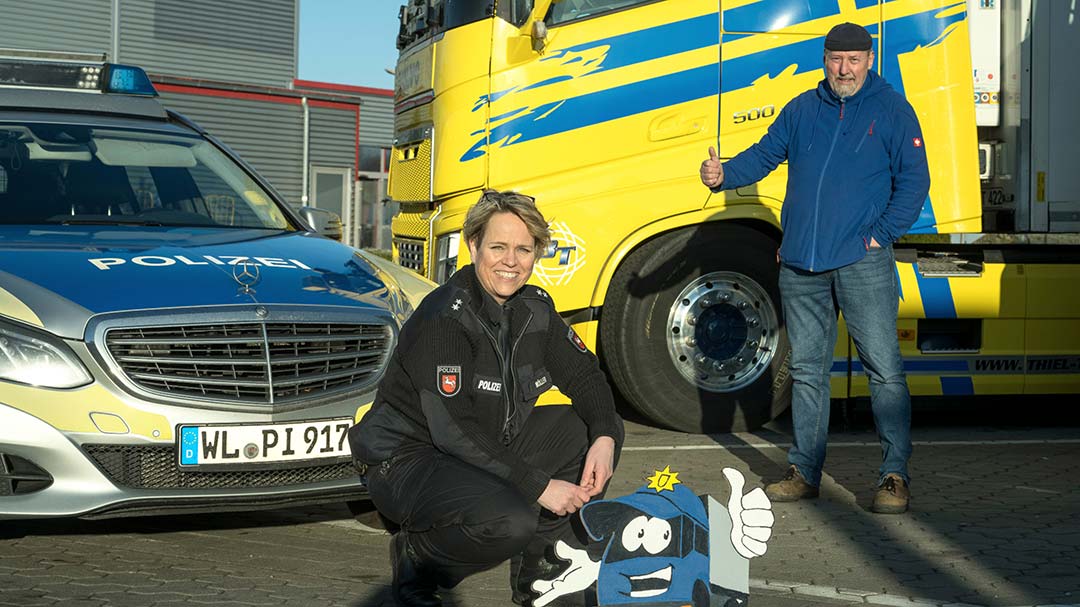
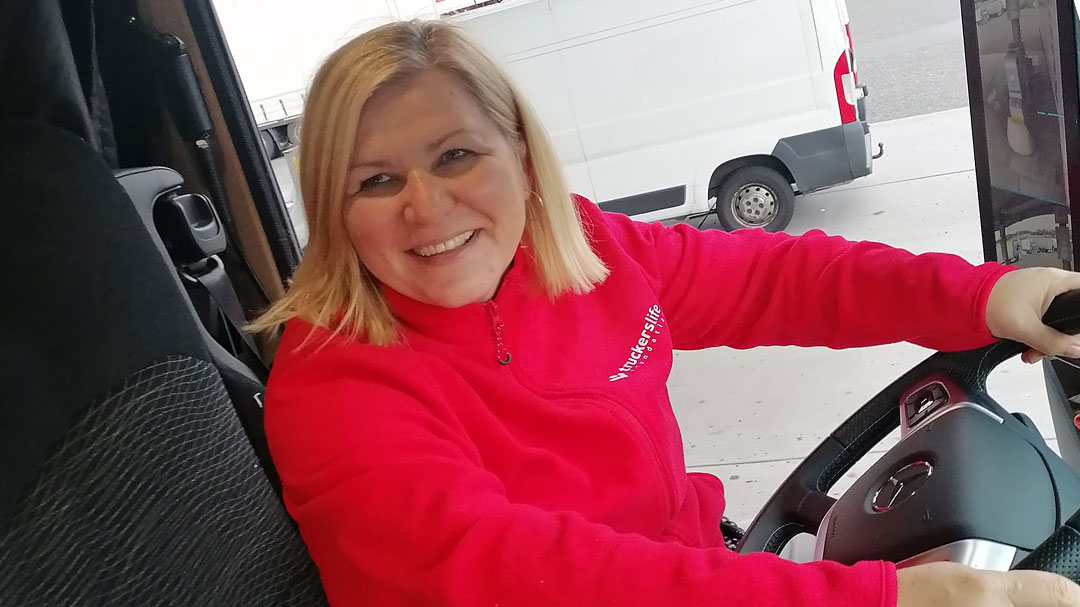




Als betroffener Kraftfahrer im Fernverkehr, begrüße ich diesen Artikel ausdrücklich. Wie erwähnt, bin ich auch der Meinung, dass der Fahrer in der Pflicht steht, etwas für sein Ansehen zu tun, sei es durch vernünftige Fahrweise aber auch durch sein Auftreten im allgemeinen. Letztlich hat Europa gefördert durch Lobbyisten und Politik, die Fahrer bekommen die sie gerufen hat. Für einige ein lukratives Geschäft, aber nicht klug! Jetzt ist erst mal die Attraktivität dahin. Das Bild von verwahrlosten, armen auf sich allein gestellte Fahrern hat die öffentliche Meinung über den Berufsstand LKW Fahrer nachhaltig geprägt.
Auf das Bewegung ins Spiel kommen möge und eine bessere Zukunft Europas.
Hallo Xavier,
besten Dank für das Feedback! Wir sind da ganz bei dir und dem Verein PROFI: Auf dass Bewegung ins Spiel kommt und das Image verbessert werden kann. Wir können alle mithelfen. LG, dein motionist.com-Redaktionsteam
Absolut top .
Bin selber Fahrer und merke jeden Tag das wir nicht immer gut behandelt werden .
Ich wollte fünf Sterne geben aber habe ausversehen 4 gedrückt.
Hallo Michael!
Vielen Dank für deine netten Worte! Auch vier Sterne sind super! Du kannst natürlich gerne beim nächsten Artikel, der dir gefällt, fünf Sterne geben 🙂 LG, dein motionist.com-Redaktionsteam
Sehr aufschlussreich, gut dargestellt, auf den Punkt.